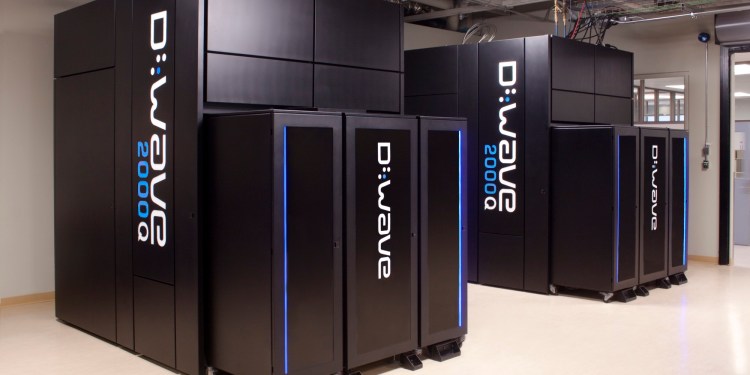D-Wave Systems today announced the availability of a lower-noise D-Wave 2000Q processor in its Leap cloud service. The lower-noise processor promises “improved performance, precision, and impact on quantum effects.” To back its claims, D-Wave published research based on the spin glass application featured in Science last year. The experimental results confirm a positive correlation between reduced noise and improved performance with at least a 25-times speed-up in solving spin glass problems.
Binary digits (bits) are the basic units of information in classical computing, while quantum bits (qubits) make up quantum computing. Bits are always in a state of 0 or 1, while qubits can be in a state of 0, 1, or a superposition of the two. Quantum computing leverages qubits to perform computations that would be much more difficult for a classical computer. Based in Burnaby, Canada, D-Wave has been developing its own quantum computers that use quantum annealing. In October, D-Wave launched D-Wave Leap, a cloud service for developers to run their open source applications on its quantum computers.
Ongoing quantum updates
D-Wave noted today that the lower-noise 2000Q processor is only available to its cloud customers. It’s the Canadian company’s way of highlighting its strategy to deliver ongoing quantum processor and software updates through the cloud. In February, D-Wave previewed its next-generation quantum computing platform coming in 2020. At the time, the company showed off that platform’s new topology and increased qubit count. Today the company demonstrated the platform’s lower noise promise.
Leap now offers two versions of the same quantum computer architecture with different levels of noise to thousands of developers, researchers, and businesses. This lets Leap users quantify the performance impact of reduced noise for themselves. D-Wave customers have developed more than 150 early applications across airline scheduling, election modeling, quantum chemistry simulation, automotive design, preventative health care, logistics, and so on.
June 5th: The AI Audit in NYC
Join us next week in NYC to engage with top executive leaders, delving into strategies for auditing AI models to ensure fairness, optimal performance, and ethical compliance across diverse organizations. Secure your attendance for this exclusive invite-only event.
“Our approach is very practical: keep putting the latest innovations in the hands of our users so that they can learn and experiment as they work to build quantum applications,” D-Wave chief product officer Alan Baratz said in a statement. “The lower-noise technology demonstrates where we’re headed and why our customers are excited — from new speed-up results on specific applications to the opportunity for users to try it out themselves, lower noise is an important ongoing area of focus for D-Wave as we build our next-generation platform.”

